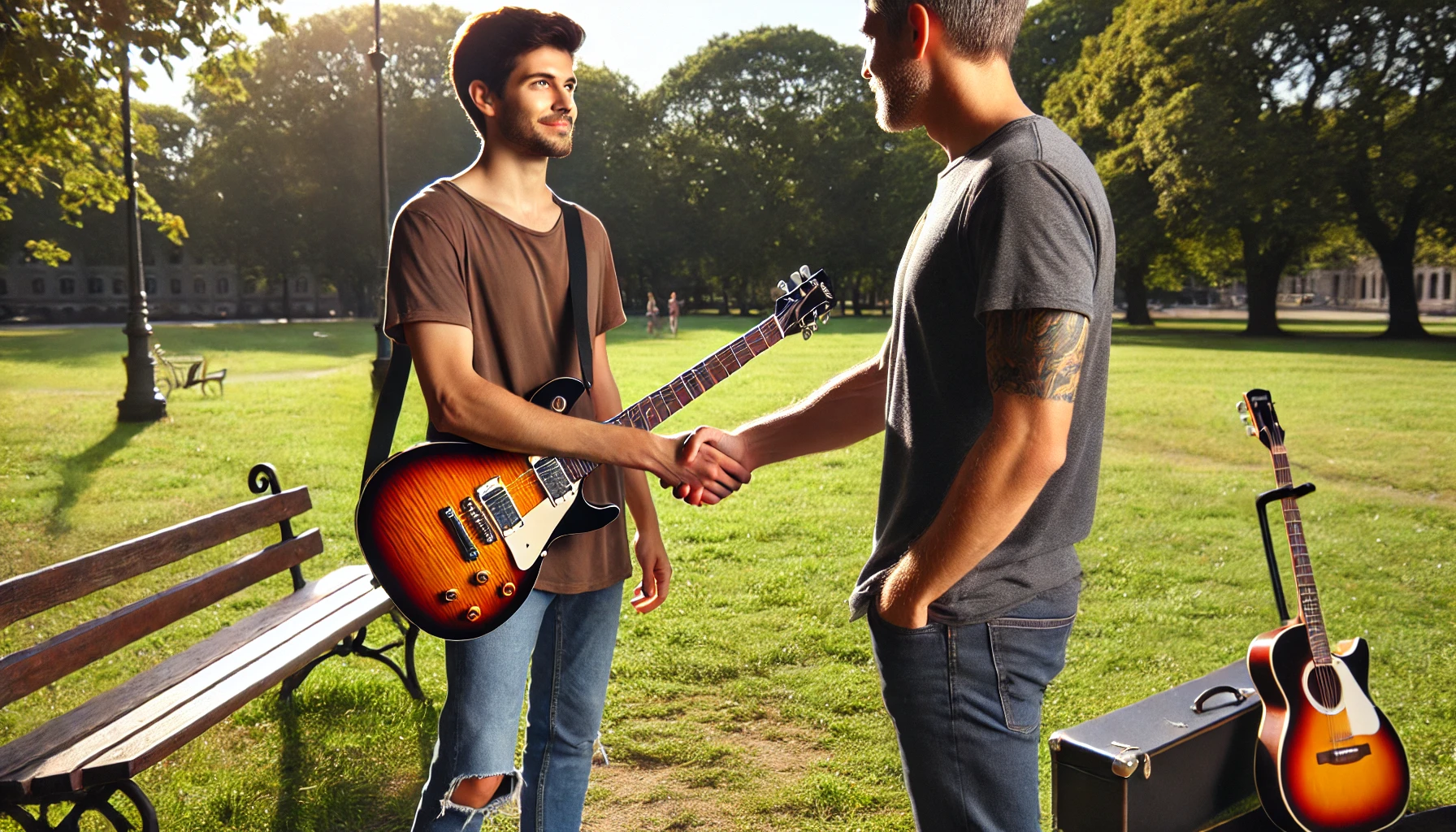
When buying a used electric guitar, asking the right questions can help you assess the condition of the instrument and ensure you’re making a sound investment. Here are some things to think about and key questions to ask:
General Condition
- How old is the guitar? – Knowing the age can help you understand its wear and potential vintage value.
- Is there any damage, dents, scratches or cracks? – Physical damage can affect both the aesthetic and structural integrity. When buying online listings with a lot of images allow you to inspect for damage. Online listings with few images or areas missing are a cause for concern. Ask the seller if they can provide images for any missing parts of the guitar. If they’re not able or unwilling to do so, walk away.
- Has the guitar been professionally set up? – A professional setup ensures the guitar plays well and stays in tune.
Electronics
- Are the electronics (pickups, knobs, switches) in working order?
- Have any of the electronics been modified or replaced? – Guitars in their original state tend to retain value better than those that have been modded. It is hard, particularly for beginners, to judge the value of a modded guitar and the quality of the upgrade work.
- Is there any noticeable hum or noise when plugged in? – This can affect both the sound and the value of the guitar.
Neck and Fretboard
- Is the neck straight? – a warped neck can make the guitar difficult to play and remain in tune. There’s a good article about this on Musicianwave.com.
- Is there significant fret wear? – Worn frets can lead to buzzing and intonation issues.
- How is the action? – High action can make the guitar difficult to play and too low an action can lead to buzzing.
Hardware
- Are the tuning machines stable and working properly? – Slipping tuners can lead to tuning instability.
- Has any of the hardware been replaced? – Non-original parts can affect the guitar’s value and performance. Ask the owner if they have the original parts.
- Are the bridge and saddles in good condition? – problems here can affect intonation and sustain.
History and Ownership
- How many owners has the guitar had? – This probably isn’t possible when buying used from a store, but something worth asking if you’re buying privately. Fewer owners increase the chance that the guitar has been well cared for.
- Has the guitar been used for gigs or just home practice? – Guitars used for gigs are going to have more wear and tear, while guitars that stay at home are much more likely to be in very good condition.
- Do you have the original case, documentation or any accessories? – Original accessories and documents can add value. Many guitars, particularly higher end ones, will come with cases, documentation, and other kinds of case candy.
Playability and Sound
- How does the guitar sound when played unplugged? – This isn’t always possible, especially when buying online. However, if you’re able to interact with the guitar in the store or in person, this can give you an idea of the guitar’s natural resonance and sustain.
- Can you plug it in and text it with an amp? – Testing the guitar through an amp is essential to evaluate its tone and electronics. Ideally, you want to test the guitar with something as close to your setup as possible. If you’re in a store, this might mean plugging into a store amp that is similar to one you already own. I have a Positive Grid Spark Go and a 10 ft guitar cable that I take whenever I check out guitars in the store. As a lefty, that doesn’t happen too often, but still…
- Is there any buzzing or dead spots on the fretboard? – These can indicate fret or neck issues that may need attention.
Price and Value
- Is the price negotiable? – Always good to know if there is room for negotiation
- Why are you selling the guitar? – Understanding the seller’s motivation can give you leverage in negotiations. It can also help you judge the reputability of the seller.
Conclusion
When buying a used guitar, thorough inspection and asking the right questions are key. Assess the guitar’s condition, history, and playability to ensure it meets your needs. A well-maintained used guitar can offer great value and character, making it a rewarding addition to your musical journey.
